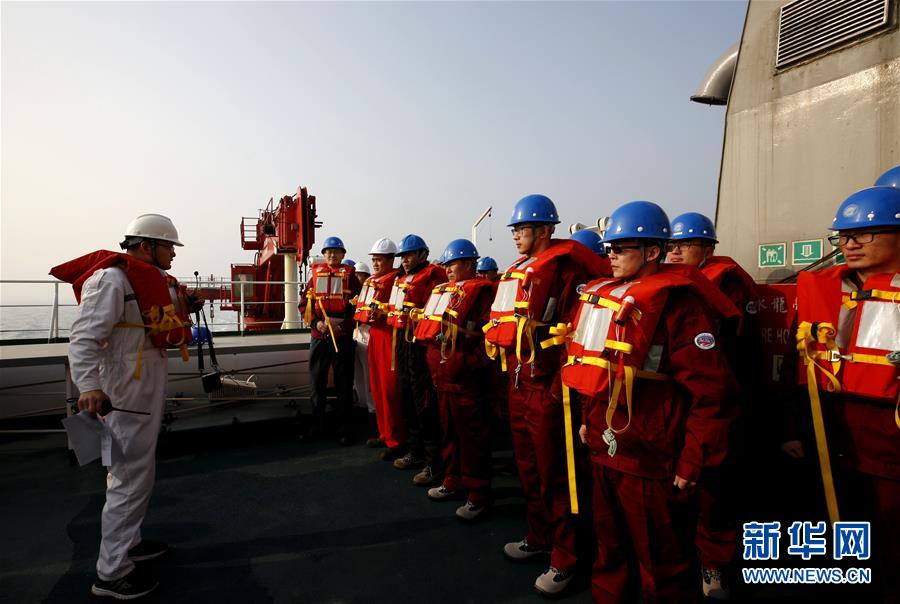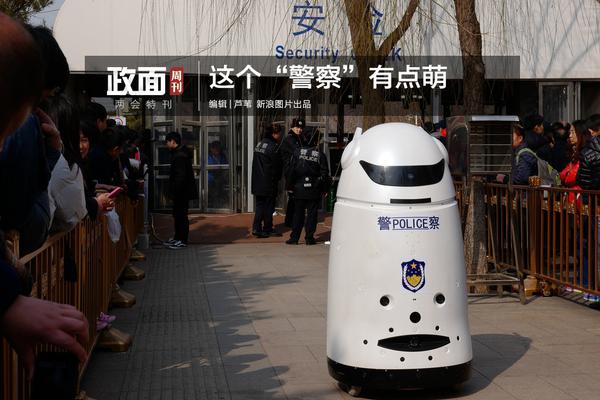
The five functional modules of the operating system are processor management, memory management, device management, file management and operation management. Processor management The most basic function of processor management is to process interrupt events. After configuring the operating system, various events can be processed.
The functions of the computer operating system include: processor management, memory management, device management, file management, job management and other functional modules. Processor management. The most basic function of processor management is to handle interrupt events. The processor can only detect interrupt events and generate interrupts and cannot process them.
Storage management is divided into several functions: storage allocation, storage sharing, storage protection, and storage expansion.Equipment management has the following functions: equipment allocation, equipment transmission control, and equipment independence. File management: file storage space management, directory management, file operation management, file protection.
The operating system should usually include the following five functional modules: (1) Processor management. When multiple programs are running at the same time, solve the problem of processor (cpu) time allocation. ( 2) Operation management. The program to complete an independent task and its required data constitute a task.
The function of the operating system is mainly reflected in the management of computer resources - microprocessors, memory, external devices, files and tasks. The operating system sets this management function into the corresponding program management module, and each management module is responsible for a certain function.That is, the five functions of the operating system.
The operating system has five functions: processor management: mainly controls and manages the work of the CPU. Storage management: mainly carry out memory allocation and management device management: mainly manage basic input and output device file management: responsible for the organization, storage, operation and protection of computer files, etc.

There are the following types of management systems: the management system of the finished product set. This kind of system is a stereotyped management system, which makes a small number of functional adjustments to the software through the parameter settings of the software.
Transaction Processing System (TPS): Operators and supervisors are used to input transactions, events, sort, list, merge updates, output detailed reports, lists and summaries, etc. Management Information System (MIS): Middle managers are used to input general transaction data and simple models to process routine reports.
Adgecal management system Academic management system is one of the most core management systems of the school, which is responsible for arranging and managing the school's teaching activities. It includes curriculum setting, teaching plan, teacher arrangement, examination management and other contents.
VMware vSphere: It is a virtualization management platform that can be used to manage virtual machines, storage and networks, etc. Nagios: It is an open source network monitoring system that can be used to monitor network devices, servers and applications, etc.
Financial subsystem: providing the function of financial management information; Decision support subsystem: make the logistics information system reach a higher level.
ERP management system brand Youyou, Jindie International Software, Wave Software, Dingjie Software, Zhenghang Software. Use friends.
1. System management refers to the information technology system that manages enterprises, and file management is one of the five major functions of the operating system.First, network management refers to the centralized management of resources on the network by network administrators through network management programs.
2. System Management regards organizational components as interrelated and interdependent systems, so it advocates applying the system concept to the management concept.
3. System management refers to the process of maintaining, managing and monitoring computer systems. As an important part of enterprise informatization construction, the importance of computer system management cannot be ignored.
Bingo Plus stock-APP, download it now, new users will receive a novice gift pack.
The five functional modules of the operating system are processor management, memory management, device management, file management and operation management. Processor management The most basic function of processor management is to process interrupt events. After configuring the operating system, various events can be processed.
The functions of the computer operating system include: processor management, memory management, device management, file management, job management and other functional modules. Processor management. The most basic function of processor management is to handle interrupt events. The processor can only detect interrupt events and generate interrupts and cannot process them.
Storage management is divided into several functions: storage allocation, storage sharing, storage protection, and storage expansion.Equipment management has the following functions: equipment allocation, equipment transmission control, and equipment independence. File management: file storage space management, directory management, file operation management, file protection.
The operating system should usually include the following five functional modules: (1) Processor management. When multiple programs are running at the same time, solve the problem of processor (cpu) time allocation. ( 2) Operation management. The program to complete an independent task and its required data constitute a task.
The function of the operating system is mainly reflected in the management of computer resources - microprocessors, memory, external devices, files and tasks. The operating system sets this management function into the corresponding program management module, and each management module is responsible for a certain function.That is, the five functions of the operating system.
The operating system has five functions: processor management: mainly controls and manages the work of the CPU. Storage management: mainly carry out memory allocation and management device management: mainly manage basic input and output device file management: responsible for the organization, storage, operation and protection of computer files, etc.

There are the following types of management systems: the management system of the finished product set. This kind of system is a stereotyped management system, which makes a small number of functional adjustments to the software through the parameter settings of the software.
Transaction Processing System (TPS): Operators and supervisors are used to input transactions, events, sort, list, merge updates, output detailed reports, lists and summaries, etc. Management Information System (MIS): Middle managers are used to input general transaction data and simple models to process routine reports.
Adgecal management system Academic management system is one of the most core management systems of the school, which is responsible for arranging and managing the school's teaching activities. It includes curriculum setting, teaching plan, teacher arrangement, examination management and other contents.
VMware vSphere: It is a virtualization management platform that can be used to manage virtual machines, storage and networks, etc. Nagios: It is an open source network monitoring system that can be used to monitor network devices, servers and applications, etc.
Financial subsystem: providing the function of financial management information; Decision support subsystem: make the logistics information system reach a higher level.
ERP management system brand Youyou, Jindie International Software, Wave Software, Dingjie Software, Zhenghang Software. Use friends.
1. System management refers to the information technology system that manages enterprises, and file management is one of the five major functions of the operating system.First, network management refers to the centralized management of resources on the network by network administrators through network management programs.
2. System Management regards organizational components as interrelated and interdependent systems, so it advocates applying the system concept to the management concept.
3. System management refers to the process of maintaining, managing and monitoring computer systems. As an important part of enterprise informatization construction, the importance of computer system management cannot be ignored.
100 free bonus casino no deposit GCash
author: 2025-01-09 04:57Hearthstone Arena class tier list 2024
author: 2025-01-09 04:29Hearthstone Arena class tier list 2024
author: 2025-01-09 03:03 Casino Plus app
Casino Plus app
749.54MB
Check Hearthstone Wild Decks
Hearthstone Wild Decks
928.93MB
Check Arena plus APK
Arena plus APK
883.33MB
Check Casino Plus
Casino Plus
251.28MB
Check 100 free bonus casino no deposit GCash
100 free bonus casino no deposit GCash
526.85MB
Check UEFA live free
UEFA live free
465.14MB
Check bingo plus update today Philippines
bingo plus update today Philippines
191.12MB
Check Hearthstone deck
Hearthstone deck
998.51MB
Check Hearthstone Arena Tier List
Hearthstone Arena Tier List
827.28MB
Check Arena Plus login
Arena Plus login
563.72MB
Check UEFA EURO
UEFA EURO
835.95MB
Check Casino Plus app
Casino Plus app
289.33MB
Check Europa League app
Europa League app
561.71MB
Check Hearthstone arena deck Builder
Hearthstone arena deck Builder
615.81MB
Check DigiPlus fair value
DigiPlus fair value
292.99MB
Check DigiPlus fair value
DigiPlus fair value
394.61MB
Check DigiPlus stock
DigiPlus stock
781.45MB
Check Bingo Plus
Bingo Plus
332.26MB
Check Casino Plus app
Casino Plus app
686.51MB
Check UEFA Champions League standings
UEFA Champions League standings
438.52MB
Check Casino Plus
Casino Plus
688.29MB
Check TNT Sports
TNT Sports
393.14MB
Check casino plus free 100
casino plus free 100
935.21MB
Check UEFA European championship
UEFA European championship
228.98MB
Check European Cup live
European Cup live
365.82MB
Check bingo plus update today Philippines
bingo plus update today Philippines
835.19MB
Check Hearthstone Arena win rate
Hearthstone Arena win rate
473.15MB
Check Hearthstone Wild Decks
Hearthstone Wild Decks
562.22MB
Check casino plus free 100
casino plus free 100
172.22MB
Check UEFA Champions League live streaming free
UEFA Champions League live streaming free
973.41MB
Check UEFA Champions League live streaming free
UEFA Champions League live streaming free
248.96MB
Check UEFA Champions League standings
UEFA Champions League standings
482.41MB
Check Hearthstone arena
Hearthstone arena
895.13MB
Check Hearthstone arena deck Builder
Hearthstone arena deck Builder
792.97MB
Check Arena Plus login
Arena Plus login
919.27MB
Check UEFA Champions League live
UEFA Champions League live
689.82MB
Check
Scan to install
Bingo Plus stock to discover more
Netizen comments More
2543 Casino redeem
2025-01-09 04:38 recommend
2617 Bingo Plus
2025-01-09 04:38 recommend
2399 LR stock price Philippines
2025-01-09 04:25 recommend
2917 Casino Plus free 100
2025-01-09 03:07 recommend
1099 UEFA Champions League
2025-01-09 02:18 recommend